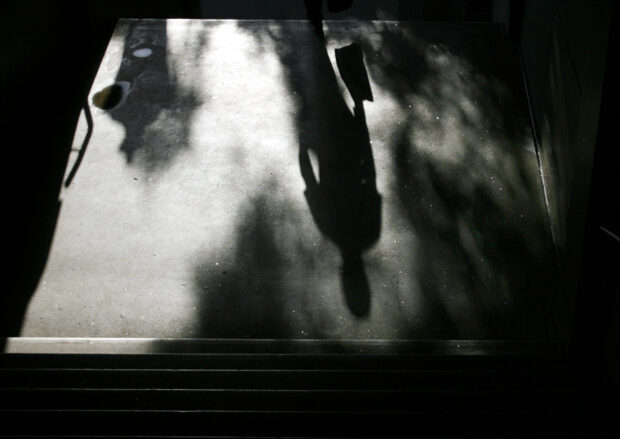Australia Sept employment misses forecasts, jobless rate ticks lower

An office worker casts a shadow as he climbs a set of steps in Sydney’s central business district in the early hours of Feb 7, 2007. REUTERS/Tim Wimborne/File photo
SYDNEY -Australia employment rose less than expected in September, following a blowout result the month before, but the jobless rate still ticked down in a sign the labor market remained drum tight.
Figures from the Australian Bureau of Statistics on Thursday showed net employment rose 6,700 in September from August, when they surged 63,300. Market forecasts had been for an increase of around 20,000.
The jobless rate dipped to 3.6 percent, under forecasts for a steady 3.7 percent. That was partly due to a pullback in the participation rate to 66.7 percent, from a record high of 67 percent.
The report alone did not move market pricing for an interest rate hike from the Reserve Bank of Australia next month, but it does raise the stake for the third-quarter inflation report due next Wednesday, which will break or make the case for a hike.
The Australian dollar slipped 10 ticks to $0.6317, while markets continued to price in an about 25 percent chance of a 25 basis point rise in the cash rate to 4.35 percent in November.
Article continues after this advertisementThe labor market has proved remarkably resilient with 394,300 net jobs added in the 12 months to September even as interest rates have climbed 400 basis points to a decade-high of 4.1 percent.
Article continues after this advertisementKate Lamb, ABS head of labor statistics, said the fall in unemployment rate mainly reflected a higher proportion of people moving from being unemployed to not in the labor force.
“Looking over the past two months, the average monthly employment growth was 35,000 people, around the average growth we’ve seen in the past year. ”
Michele Bullock, the new RBA governor, on Wednesday warned there were signs that inflation in the country might be difficult to suppress, and policymakers will have to raise rates again if inflation remains higher than expected.
The RBA currently forecasts inflation, which was running at 6 percent in the second quarter, to return to the bank’s 2-3 percent target in late 2025.
Hours worked fell 0.4 percent in September, following a drop of 0.5 percent in the previous month, which likely suggests an easing in the labor market strength.